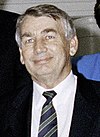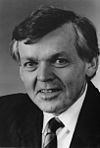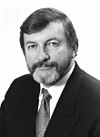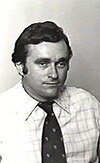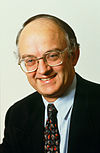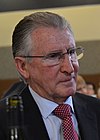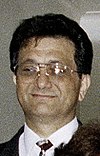Changes to the ministry
On 27 April 1993, following his success at the Dickson special election on 17 April, Michael Lavarch was appointed Attorney-General.
On 23 December 1993, Treasurer John Dawkins resigned from the ministry and from Parliament, and a reshuffle took place. Laurie Brereton and Gary Johns were appointed to the ministry. [3]
On 30 January 1994, Alan Griffiths resigned from the ministry. [4]
On 1 March 1994, Ros Kelly resigned from the ministry following the sports rorts affair. [5]
On 25 March 1994, Graham Richardson resigned from the ministry citing ill health. Carmen Lawrence, who had replaced Dawkins at the 1994 Fremantle by-election, was appointed to the ministry. Con Sciacca and Gary Punch were promoted to ministers to fill earlier vacancies. [6]
On 20 June 1995, Brian Howe resigned as Deputy Prime Minister, although retaining his Housing and Regional Development portfolio. The party room unanimously elected Kim Beazley to replace him. [7]

Robert James Lee Hawke was an Australian politician and trade unionist who served as the 23rd prime minister of Australia from 1983 to 1991. He held office as the leader of the Australian Labor Party (ALP), having previously served as the president of the Australian Council of Trade Unions from 1969 to 1980 and president of the Labor Party national executive from 1973 to 1978.

Paul John Keating is an Australian former politician who served as the 24th prime minister of Australia from 1991 to 1996, holding office as the leader of the Labor Party (ALP). He previously served as treasurer under Prime Minister Bob Hawke from 1983 to 1991 and as the seventh deputy prime minister from 1990 to 1991.
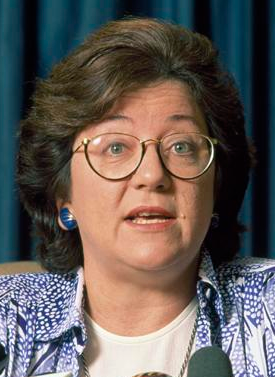
Carmen Mary Lawrence is an Australian academic and former politician who was the premier of Western Australia from 1990 to 1993, the first woman to become the premier of an Australian state. To date she is the only female premier of Western Australia. A member of the Labor Party, she later entered federal politics as a member of the House of Representatives from 1994 to 2007, and served as a minister in the Keating government.

Ian McCahon Sinclair is an Australian former politician who served as a Member of Parliament for 35 years, and was leader of the National Party from 1984 to 1989. He served as either a minister or opposition frontbencher for all but a few months from 1965 to 1989, and later Speaker of the House of Representatives from March to August 1998.
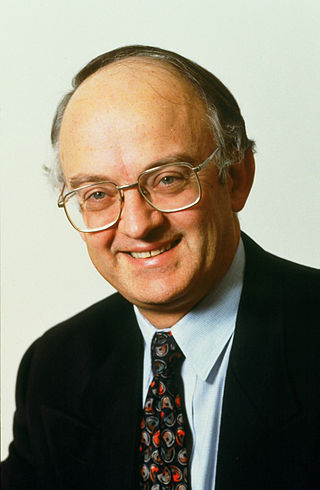
Robert Francis McMullan is a former Australian politician. A member of the Australian Labor Party (ALP), he was a cabinet minister in the Keating government as Minister for Arts and Administrative Services (1993–1994) and Minister for Trade (1994–1996). He was a member of federal parliament for over 22 years, initially as a Senator for the Australian Capital Territory from 1988 to 1996 and then as a member of the House of Representatives from 1996 to 2010. Prior to entering parliament he was state secretary of the ALP in Western Australia from 1975 to 1981 and national secretary from 1981 to 1988.
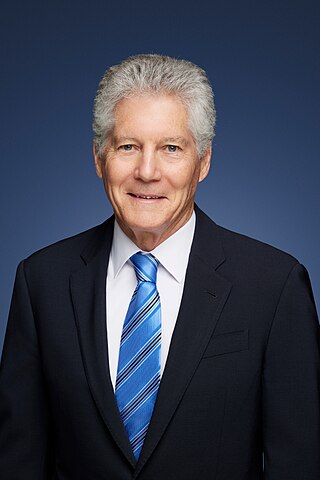
Stephen Francis Smith is an Australian former politician and diplomat serving as the 26th and current high commissioner of Australia to the United Kingdom since 2023. A member of the Australian Labor Party (ALP), he was the federal member of Parliament (MP) for the division of Perth from 1993 to 2013, serving in the Rudd and Gillard governments as minister for Foreign Affairs from 2007 to 2010, minister for Trade in 2010 and minister for Defence from 2010 to 2013.

John Philip Faulkner is an Australian former Labor Party politician who was a Senator for New South Wales from 1989 to 2015. He was a Cabinet Minister in the Keating, Rudd and Gillard governments.

Ralph Willis AO is an Australian former politician who served as a Cabinet Minister during the entirety of the Hawke-Keating government from 1983 to 1996, most notably as Treasurer of Australia from 1993 to 1996 and briefly in 1991. He also served as Minister for Industrial Relations, Minister for Transport and Communications and Minister for Finance. He represented the Victorian seat of Gellibrand in the House of Representatives from 1972 to 1998.
Marjorie Madeline Henzell is an Australian politician. She was an Australian Labor Party member of the Australian House of Representatives from 1993 to 1996, representing the electorate of Capricornia.

John Sydney "Joe" DawkinsAO is an Australian former politician who was Treasurer in the Keating Labor government from December 1991 to December 1993. He is notable for his reforms of tertiary education as Minister for Employment, Education and Training, his period as Treasurer when he attempted to increase taxes in order to balance the budget and his abrupt exit from politics.

Michael John Lee is an Australian Labor politician. He was a member of the House of Representatives 1984–2001, a minister in Paul Keating's government, and a member of the City of Sydney Council 2004–08.

Gary Gray, Australian former politician and Australia's Ambassador to Ireland, was the Australian Labor Party (ALP) representative for the Division of Brand in Western Australia in the Australian House of Representatives from 2007 to 2016. On 25 March 2013, Gray was appointed to the Australian Cabinet as the Minister for Resources and Energy, the Minister for Tourism and the Minister for Small Business. From 2010 until 2013, Gray served as the Special Minister of State for the Public Service and Integrity.

Gary Francis Punch is a former Australian politician and government minister.
The "sports rorts" affair was the name by which Australian media and political commentators came to refer to events during the second Keating ministry in late 1993 and early 1994, where the then Sports Minister, Ros Kelly, was unable to appropriately explain the distribution of federal sporting grants to marginal electorates held by the governing Australian Labor Party. On 28 February 1994, Kelly resigned from her position under consistent pressure from the Australian Democrats and the Liberal opposition about the matter. Ultimately, the controversy also led to her resignation from Parliament and, at the resulting by-election on 25 March 1995, the government lost the normally safe Labor seat of Canberra.
The Lawrence Ministry was the 31st Ministry of the Government of Western Australia, and was led by Labor Premier Dr Carmen Lawrence and her deputy Ian Taylor. It succeeded the Dowding Ministry on 18 February 1990, following the resignation of Peter Dowding six days earlier following an open letter signed by a majority of the 47-member Labor caucus. The ministry was in turn succeeded by the Court–Cowan Ministry on 16 February 1993 after the Labor Party lost government at the state election held on 6 February.

The Hawke government was the federal executive government of Australia led by Prime Minister Bob Hawke of the Australian Labor Party (ALP) from 1983 to 1991. The government followed the Liberal-National Coalition Fraser government and was succeeded by another Labor administration, the Keating government, led by Paul Keating after an internal party leadership challenge in 1991. Keating was Treasurer through much of Hawke's term as prime minister and the period is sometimes termed the Hawke-Keating government.
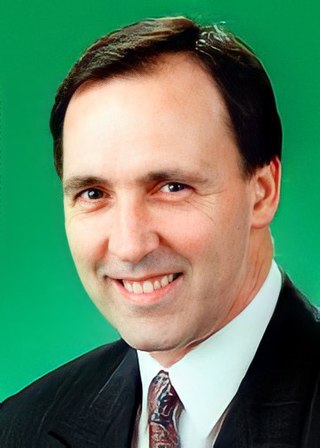
The Keating government was the federal executive government of Australia led by Prime Minister Paul Keating of the Australian Labor Party from 1991 to 1996. The government followed on from the Hawke government after Paul Keating replaced Bob Hawke as Labor leader in an internal party leadership challenge in 1991. Together, these two governments are often collectively described as the Hawke-Keating government. The Keating government was defeated in the 1996 federal election and was succeeded by John Howard's Coalition government.

The Second Andrews ministry was the 70th ministry of the Government of Victoria. The Labor government, led by Premier Daniel Andrews and Deputy Premier James Merlino, was officially sworn in on 29 November 2018, following the party's second consecutive victory at the 2018 state election, which was held on 24 November 2018.
The First Barr Ministry was the 13th ministry of the Government of the Australian Capital Territory, and was led by Labor Chief Minister Andrew Barr and his deputy Simon Corbell. It was appointed on 15 December 2014 following the resignation of Katy Gallagher as Chief Minister and the subsequent election of Andrew Barr as her replacement by the Australian Capital Territory Legislative Assembly. Green's Shane Rattenbury continued to serve as a minister for the remainder of the parliamentary term, as part of the Labor-Greens parliamentary agreement signed in 2012 at the start of the term.




